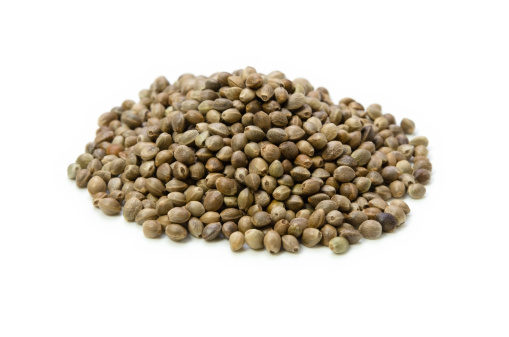CBD / THC Oil – Full Spectrum Hemp Oil
By combining a special screw configuration and special parameters in the PressPilot process control system, it is with our equipment possible to extract full spectrum CBD oil in a purely mechanical and biological extraction process. The specially developed process offers you numerous advantages over other chemical processes for CBD oil extraction (such as CO2 extraction):
- Processing of whole cannabis flowers possible
- Fully automated and continuous process at lowest production costs
- Purely mechanical extraction process without the need for solvents
- Scalable from 20kg/h, without capacity limitation upwards
- Product parameters (CBD & THC content) can be specifically adjusted
- Better medical effect and market acceptance of purely biologically produced full spectrum CBD oil compared to chemically produced CBD isolates
In the following a small insight into the processing as a video. Please contact us personally for more information:
Hemp oil – technical processing

The processing of hemp seeds with the Florapower – presses of all series is effortless.
The optimized plant configuration guarantees an efficient and stable pressing process with highest yields and best product quality.
Full added value from a single source: Our specially developed processing process for hemp seeds enables additional by-products to be obtained, which can be supplied to the market in a profit-maximizing manner.
The variations of the product flows in the process allow an exact adjustment of the oil quality and other end products. The special selection of the plant components (universal press, filters, etc.) allows a product in organic quality.
Usually, all intermediate products can be utilized financially, so there are no unused or costly intermediate products or waste in the process.
Our solutions are also scalable and can be expanded and upgraded at a later date without great expense.
For you, this means maximum production flexibility and rapid return on investment with significantly higher margins. You can plan your budget individually and adapt it to market developments. By the way: with this process setup, thistle and flax can also be processed excellently.
Call us or send us an email – we will be happy to advise you and show you the possibilities!
Oil extraction
Hemp oil, which is obtained from the seeds of hemp by means of a mechanical extraction, should not be confused with hemp essential oil, which is obtained by distillation from hemp leaves and flowers, nor with hashish oil, which is formed from the resin of the plant as a resin extract. Unlike the resin of hemp, its seeds contain hardly any THC (tetrahydrocannabinol) and therefore do not cause intoxication.
If one wants to obtain a high-quality hemp oil from the hemp seeds, a gentle harvest and a mechanical pressing / oil press are indispensable. Due to its firm shell, the seed is protected from environmental influences such as oxygen and sunlight. If you want to extract oil from the seeds, they must be pressed in an oil mill using a screw press / oil press. The cold pressing process / oil press is best suited for this, since here (for hemp) the oil temperature is approximately between 40 ° C to 60 ° C, and thus the valuable ingredients of hemp oil are not damaged by heat and reduced. At 30-35% oil content, the oil yield is about 180 to 350 liters per hectare.
Characteristics and shelf life
The color varies according to the type of production. Cold-pressed hemp oil is greenish yellow, while warm-pressed oil is rather dark green; oil extracted with benzene and carbon disulphide has a brownish yellow tinge, and oil extracted with diethyl ether has an intense yellow color. Hemp oil smells herbal and fragrant, possessing a raw nutty aroma.
The taste varies from nutty to herbal.
The flash point is between 170 and 220° C; the melting point, from approximately -25 to -15°C.
In addition to containing diverse plant substances,such as chlorophyll, carotinoids and vitamins, hemp oil is composed largely of fatty acids (over 80% are unsaturated). Above all, the polyunsaturated fatty acids (omega-3) linoleic acid, α-linoleic acid, and the rare γ-linoleic acid contained in the oil are particularly important for a healthy diet.
Hemp oil stored in a dark bottle in a cool place will have a shelf life of six to nine months.
Uses
Pharmaceutical and medical uses
Due to its high percentage of mono-and polyunsaturated fatty acids, hemp oil is also readily used in the medical and pharmaceutical industries. It is successfully used, for example, to help treat high cholesterol, allergies, and arteriosclerosis, according to the Lexikon der pflanzlichen Fette und Öle (lexicon of plant fats and oils). Because it contains high amounts of important polyunsaturated fatty acids, especially α-linolenic acid and the rare γ-linolenic acid, it can also be used for dietary purposes, to deliver essential fatty acids to the body during a fat-restricted diet. In addition, it can be used therapeutically, to heal vascular disease for example, since the polyunsaturated fatty acids positively affect the cell membranes and thereby the elasticity of the vessels and the fluidity of the blood. Thus it strengthens the vascular system and prevents harmful plaque. What is more, it can also prevent the formation of blood clots (according to the Lexikon der pflanzlichen Fette und Öle).
Beyond this, the γ-linolenic acid contained in hemp oil, according to the Lexikon der plfanzlichen Fette und Öle, has an important significance in the formation of prostaglandin, an anti-inflammatory, and can also be effective against neurodermatitis, skin diseases, and psoriasis. It also aids in reducing diabetes, cardiovascular diseases and various chronic inflammations, as well as in reducing the risk of heart attack.
Further positive characteristics of hemp oil, according to Günter A. Ulmer’s book Heilende Öle (healing oils), are as an antispasmodic in epileptic attacks, multiple sclerosis, and chronic pain, thus also being able to positively affect the wellbeing of cancer and AIDS patients.
In the cosmetic industry
The high portion of unsaturated fatty acids, most especially linolenic acid and α-linolenic acid, lends it a strong lubricating property, making it very suitable for skin and hair, which is why it is readily used in cosmetic products. It is used particularly in products for rough, irritated or scaly skin, since the special fatty acids contained in the hemp oil stave off dehydration and tearing of the skin, as well as prevent excessive moisture loss. Moreover, this oil constitutes a very good softener for skin and hair, giving it wide application in the development of massage oil, ointments, creams, soaps, and also shampoos.
This oil is also employed in the natural cosmetic industry, since, owing to its pesticide-free cultivation, it contains no toxic residues.
Industrial uses
Hemp oil finds yet another field of application as technical oil in industry. Here it serves as a resource for the production of detergents, due to its high percentage of triacylglycerides. Through various chemical processes (saponification, ethoxylation, and sulfation), different resources such as soaps, emulsifiers, solvents, care nutrients, and surfactants can be produced for the cleaning industry, all having the advantage of being easily biodegradable. Furthermore, its gliding property allows it to serve in the production of printing ink, paints, and varnishes; and it is also employed in the manufacture of wood preservatives, lubricants, and wax crayons.
Particularly in the East it is still used today as lamp oil, because it burns especially brightly and, when combined with essential hemp oil, develops the aroma characteristic of hemp.
In the kitchen
Due to its fatty acid spectrum, which contains all the essential fatty acids important for human health, hemp oil ranks as one of the best and most nutritionally valuable plant oils and readily finds culinary usage. It is used chiefly to prepare salads, dressings, sauces, marinades, and spreads for bread. Its relatively low smoke point of 165° C, however, prevents it from being suitable for grilling or deep-frying, since the fatty acids would otherwise break down at higher temperatures and thereby alter the taste of the oil. In contrast, it is quite safe to use hemp oil for braising and steaming.
We will be happy to advise you on this seed and show you options. Contact us
In addition to their own knowledge acquired through press trials, the following sources were used to create the article:
- Öle, natürlich kaltgepresst, Basiswissen & Rezepte, Marcus Hartmann, Hädecke, 2008
- Heilende Öle, Pflanzenöle als Nahrungs- und Heilmittel, Neue Erkenntnisse, Günter Albert Ulmer Verlag Tuningen
- Lexikon der pflanzlichen Fette und Öle, Krist, Buchbauer, Klausberger, SpringerWienNewYork, 2008
- www.wikipedia.de
- en.wikipedia.org

